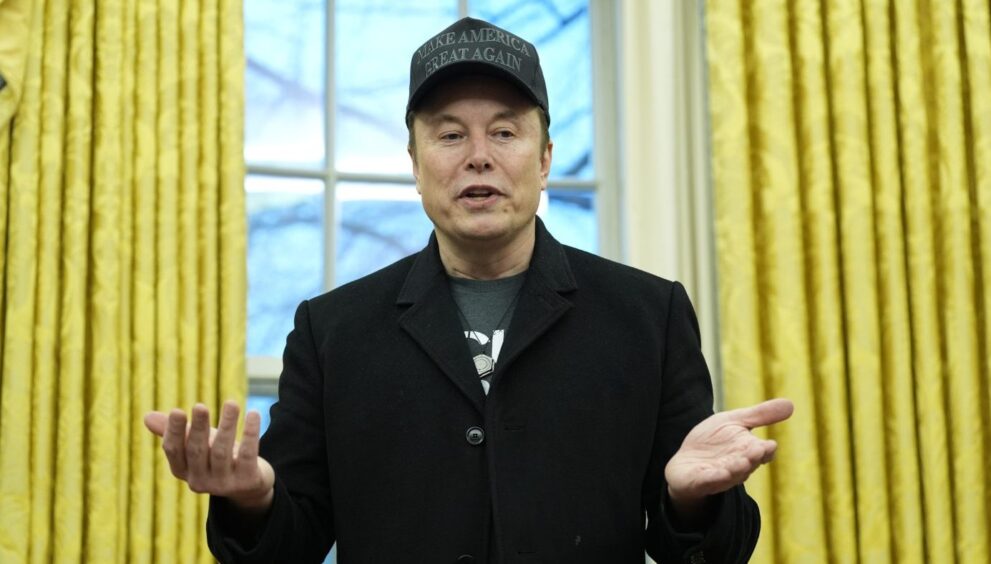Elon Musk is Peddling Falsehoods

Elon Musk is widely regarded as the wealthiest individual on the planet, with a net worth of almost $400 billion primarily driven by his stakes in Tesla and SpaceX. In stark contrast, tech mogul Mark Zuckerberg trails Musk by approximately $140 billion.
The disparity between Musk and Zuckerberg alone surpasses Kenya’s entire gross domestic product.
It’s troubling to see such immense riches solely concentrated in the hands of one person, particularly when over half of the global population survives on less than $5 per day. One would think Musk is aware of this. Perhaps that explains why he is so vocal about justifying his extreme affluence.
One tactic he employs is glamorizing his own work ethic. Musk frequently emphasizes that every cent of his nearly $400 billion was hard-earned. He presents himself publicly as a self-made individual, rejecting any notion of being born into wealth. Instead, Musk positions himself as a hardworking industrialist, attributing his fortune to dedication and perseverance.
Recently, Musk claimed to be clocking 120-hour work weeks and urged his staff at the Department of Government Efficiency to follow suit.
Even if Musk is telling the truth about his work hours, compelling employees to work under such conditions is unreasonable. This approach is unlikely to enhance productivity over time, as it would lead to exhaustion and possibly depression among workers. Consequently, they would struggle to deliver their best performances on a daily basis, ultimately jeopardizing any operation, whether in the public or private sector.
It is noteworthy that Musk advocated tripling the standard workweek without promising higher compensation. This clearly demonstrates how billionaires often disregard the well-being of their employees and are willing to disregard labor rights to fulfill their objectives. To Musk, workers are mere components of his enterprise – not individuals with families who also desire leisure time. A 120-hour workweek hardly allows for that, leaving barely any room for sleep.
These actions are concerning enough, but Musk also appears to contradict himself by expecting government workers to adopt a work regime he doesn’t adhere to. Indeed, it seems unreasonable that Musk genuinely works 120 hours weekly, as demonstrated by his own statements.
During an appearance on Joe Rogan’s podcast, Musk disclosed that he sleeps six hours per night – totaling 42 hours per week. With each week consisting of 168 hours, he would have just 126 hours left for other activities after sleep, equating to a mere six hours per week not occupied by work or rest.
Moreover, Musk asserts he ranks among the top 20 players in the game “Diablo” globally. Given the game’s extensive player base, earning such a status would require considerable dedication.
Yet, if Musk truly devotes 120 hours a week to work, he would have no more than around 51 minutes daily available for gaming, without accounting for essentials like meals, restroom breaks, or personal activities.
This timeframe would be insufficient to achieve such a ranking. Numerous gamers have scrutinized his claims, suspecting he might have enlisted individuals to play on his behalf, casting doubt on Musk’s reliance on others’ labor for profit.
Additionally, Musk shows a fondness for X, the social media platform he owns, regularly posting over 100 tweets daily (excluding retweets). This level of engagement conflicts with his strenuous work hours and raises skepticism about his assertions.
Musk’s apparent deceit emphasizes how the ultra-rich go to great lengths to validate their disproportionate wealth. They often push the narrative that their affluence resulted from hard work, but the reality is that billionaires owe their status predominantly to circumstance and the advantages of capitalism.
Elias Khoury, a law student at the University of Michigan, has contributed to publications such as Newsweek and Al Jazeera. He holds a graduate degree in public policy from the London School of Economics.






















































































































































































































































































































































































































































































































































































































































































































































































































































































































































































































































































































































































































































































































































































































































































































































































































































































































































































































































































































































































































































































































































































































































































































































































































































































































































































































































































































































